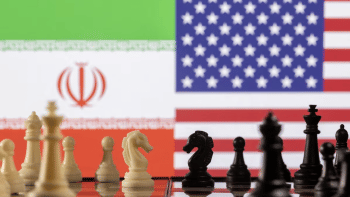Gaza, guns, and capitalism

The Marxian theory of "capital moves a capitalist towards making more capital" explains why US arms trade is ever-increasing and why the country manufactures and sustains conflicts between nations, sects, and religious groups.
The United States has had a history of success in arms production and arms trade even before World War I. Capitalists invest in this sector as it is the most profitable. This success in arms trade has strengthened the basis of US hegemony in the global economy.
James M Cypher, an economist and research scholar at the Institute for Sustainable Prosperity, wrote, "The US has immensely benefited from their policy of inducing intra-country or cross-border conflicts and wars because it helped them form enormous capital while it is the main supplier of arms used in these conflicts and wars." The fact that the US was able to overcome the Great Depression as soon as it started receiving orders for arms from Europe and Asia is a testimony to this. Following the increasing demand for arms, the US military expenditure jumped to 600 percent from June 1940 onwards, and constituted 42 percent of its GDP around 1943-44. This is why many economists refer to the US economy as a "military economy."
From 1939 to 1944, the military sector employed 15 million workers, real GDP jumped to 54 percent, and unemployment rate fell to just 1.4 percent—the lowest in US history. This state of the US economy is described in terms of "guns and butter." In the field of military technology, the US also achieved incredible innovation. They mastered at least 20 technological innovations during the mentioned period.
After World War II, the US economy stagnated again. To cure the stagnated economy, a debate was raised: should the country adopt a discretionary fiscal policy or "social Keynesianism?" Finally, it was resolved in 1950, by the implementation of the Secret National Security Plan titled NSC-68, referred to as the aforesaid "guns and butter" approach. Leon Keyserling, the chairman of the American Council of Economic Advisers, proposed a massive military spending increase, abandoning the principles of "social Keynesianism." With the implementation of his proposal, the Pentagon's arms sales increased from $14.8 billion in 1950 to $51.1 billion in 1951, which is 15.1 percent of GDP. This huge jump in GDP was due to the Pentagon's arms sales.
Until the first half of the 1980s, the US made great strides in state-funded military research and development known as "blue-sky." Radical changes took place in the production structure. Arms-production became dominant, and the state-sponsored and state-funded military sector became the basis of growth in the US economy. Military spending yields a disproportionately higher rate of return than investment in other sectors, and investment in arms adds more to GDP than any other investment—this is the foundation of so-called "military Keynesianism." As a result, the influence of Keynesian theory among US policymakers declined. They turned to neoliberalism, which is more capitalistic and market-reliant. Private owners of capital and the US itself have benefited from their investment in arms production since World War I. Over the course of time, the US became a greedy nation. It is this indomitable desire of the capitalist nation to extract more capital that is stated in the Marxian theory. This theory helps the world understand why the US instigates and sustains wars.
The greed explains why no government has been able to pass "gun control" laws even if they wanted to. The fact is the owners of the gun industry are more powerful than the government. After being elected, President Barack Obama admitted that he was able to win because he was able to raise the amount of funds he wanted. Donating to politicians is an investment for the gun makers, as it helps them get laws passed in favour of their interests. The US government cannot go against gun factory owners.
As of June 6, 2022, the United States has 750 military bases in 80 countries and a total of 173,000 troops stationed in 159 countries. The large number of weapons of mass destruction used in these bases is supplied by private munitions manufacturers. The owners of these weapons industries are directly or indirectly the makers of US foreign policy. That is why the US is the only country which voted against the "ceasefire in Gaza" resolution in the UN Security Council. Joe Biden himself is a beneficiary of the arms trade. Even if he wanted to, he could not go against the owners of the arms industry because the capitalists are all too powerful and the "real" powers that be.
Historian Roxanne Dunbar-Ortiz, former professor at California State University, explains the totalitarian attitude of US-Americans in her book An Indigenous People's History of the United States. This totalitarian attitude of people in the US, she explains, stems from colonialist attitudes. Those who, especially from the United Kingdom, have settled in various countries, including North America, have taken away the lands of the Indigenous people, made them destitute, and in doing so, inflicted endless torture on them.
Professor Keynes' prescription, which was able to end the Great Depression, proposed government intervention rather than leaving the economy entirely to the market. After World War II, the US abandoned Keynes' prescription and adopted neoliberalism. Consequently, the country became more capitalistic and market-dependent. Control was removed from financial institutions, and the individual became more powerful than the state.
It is, therefore, the capitalists who persuade the government to sustain war, and to carry out aggression. They are the ones who sell weapons to governments globally. Even if they have to kill a pregnant woman—even a child—in carrying out that war, they will not back down because they are maddened by the greed of profit. After the October 7 Hamas attacks, Gaza has been destroyed by the Israeli army's indiscriminate onslaught. What the world has witnessed so far, is the naked face of capitalism.
Dr N N Tarun Chakravorty is visiting professor of economics at Siberian Federal University, Russia, and editor-at-large at South Asia Journal.
Views expressed in this article are the author's own.
We welcome your contributions and analysis of global events. To submit articles to our weekly page, Geopolitical Insights, please send an email to [email protected]
Follow The Daily Star Opinion on Facebook for the latest opinions, commentaries and analyses by experts and professionals. To contribute your article or letter to The Daily Star Opinion, see our guidelines for submission.

 For all latest news, follow The Daily Star's Google News channel.
For all latest news, follow The Daily Star's Google News channel. 










Comments